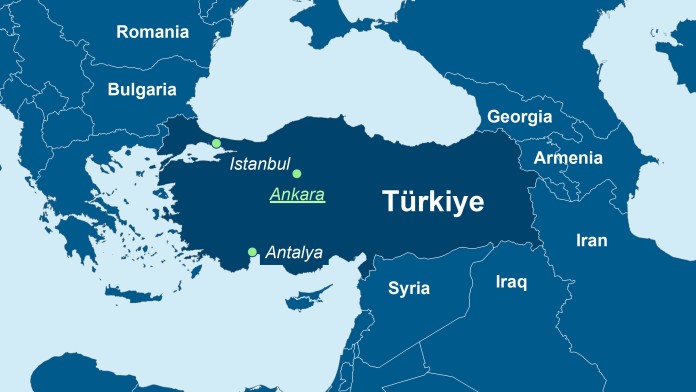
With the outbreak of the war in Syria in 2015, around 4.5 million refugees live in Türkiye, more than 3.6 million of them from Syria, others from Afghanistan, Iraq, Iran and Somalia. After the Russian war of aggression on Ukraine, the number of Ukrainian refugees is also growing steadily. No country in the world is home to more refugees than Türkiye. Germany and the EU are supporting the country in integrating refugees in order to ensure social cohesion with the local population.
The core sectors of KfW Development Bank in Türkiye are:
On behalf of the German Federal Ministry for Economic Cooperation and Development (BMZ), KfW has been implementing projects in a refugee context since 2015 as part of the BMZ’s Middle East/Türkiye Cash-for-Work Programme (Special Initiative on Forced Displacement) and the EU-Türkiye Agreement (“FRIT Facility”). The aim is to create long term opportunities for Syrian refugees in Türkiye through schooling and vocational training as well as by providing the respective infrastructure.
In the case of the Special Initiative on Forced Displacement supported by the Federal Ministry for Economic Cooperation and Development (BMZ), refugees, for example, are supported in setting up a company or placed into regular employment. The measures are being implemented by United Nations organisations, among others. For example, KfW is supporting UNICEF in improving the educational opportunities of refugee children by involving Syrian support staff, among other measures.
As part of the EU FRIT facility (Facility for Refugees in Türkiye) and the MADAD Trust Fund (EU Regional Trust Fund in Response to the Syrian Crisis), KfW is financing the construction of around 340 preschools and schools, as well as the energy-efficient rehabilitation of existing schools.
With support from EU funds, KfW is financing the construction of sports facilities and youth centres in cooperation with the Turkish Ministry of Youth and Sports.
A project promoted by KfW in cooperation with ILO is helping to integrate Syrian refugees and Turkish citizens into the primary labour market. Another goal of cooperation with Türkiye is to strengthen the financial standing of micro, small and medium-sized enterprises (MSMEs).
In addition to “refugees and migration”, KfW is also supporting climate projects in Türkiye. The country has set itself the goal of becoming climate neutral by 2053. The German Federal Government is supporting these efforts with financing of EUR 200 million for additional climate change mitigation and adaptation measures. KfW has been supporting climate action and the energy sector transformation in Türkiye for more than 10 years. Credit lines to Turkish development banks in particular contribute to expanding the use of renewable energy sources and improving energy efficiency, thereby promoting a more progressive climate policy in the country. On behalf of the Federal Ministry for Economic Cooperation and Development (BMZ), credit lines of more than EUR 500 million have been extended to the Turkish Environment and Development Bank (TSKB) in recent years for this purpose, and development loans of around EUR 130 million to the state-owned Development Bank of Türkiye (TKYB).
KfW contributes to disaster prevention and energy efficiency in the area of municipal promotion. Large parts of Türkiye and in particular the metropolis of Istanbul with its 15 million inhabitants are extremely prone to earthquakes. As part of the Istanbul Seismic Risk Mitigation and Emergency Preparedness Project (ISMEP), public buildings are being renovated or newly constructed to make them earthquake-proof and energy efficient. KfW’s support includes in particular schools and hospitals.
KfW Office Ankara
Director KfW Office: Dr Kirk Mildner
Pak Sokak No:1/75
06540 Çankaya Ankara
Türkiye
+90 312 428 84 15
Fax: +90 312 428 84 16